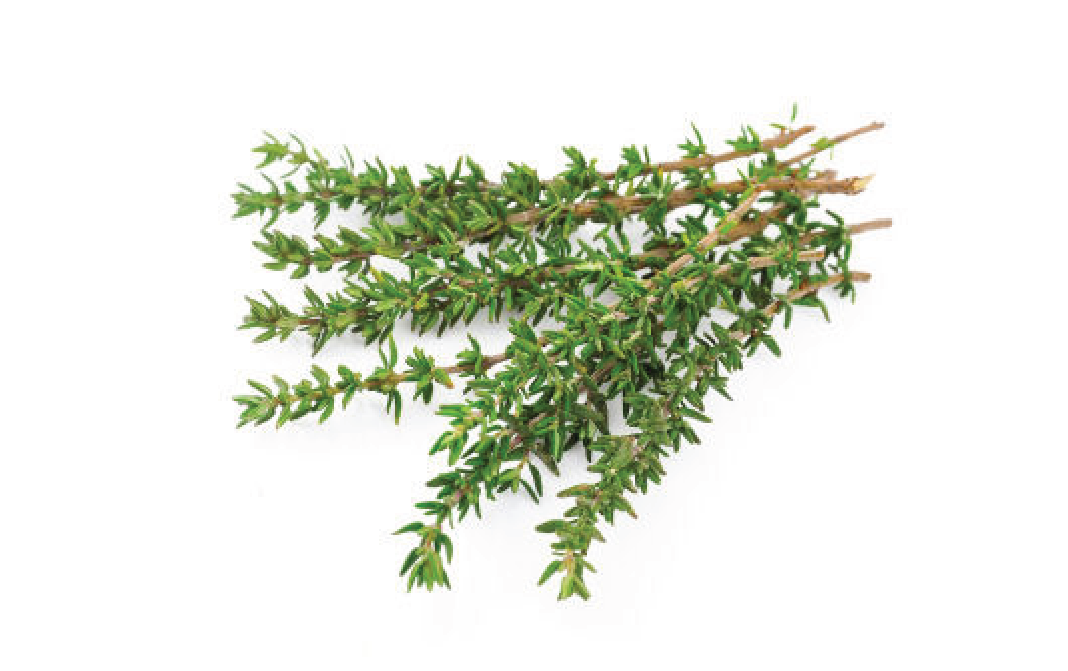


Choose fresh thyme with bright-colored leaves. Avoid those leaves that are wilted, dried out, or black.
It contains compounds such as thymol and carvacrol which might cause irritation of the mucuous membranes in people who are sensitive. Pregnant women should avoid the use of Thyme as it may cause miscarriage.(2)
(1,2) https://www.lybrate.com/topic/benefits-of-thyme-and-its-side-effects
- Disclaimer
"Information here is provided for discussion and educational purposes only. It is not intended as medical advice or product or ingredient review/rating. The information may not apply to you and before you use or take any action, you should contact the manufacturer, seller, medical, dietary, fitness or other professional. If you utilize any information provided here, you do so at your own risk and you waive any right against Culinary Communications Private Limited, its affiliates, officers, directors, employees or representatives.”
Description
Thyme has tiny rounded leaves growing in clusters around its thinly wooded stems. It is a perennial herb and member of the mint family, Labiatae. It is a delicate herb in appearance. Younger leaves are bright green in color and fade to grey-green with age. Its flavor counters its appearance with bold nuances of its essential oil, thymol. Thyme is originated in southern Europe and the Mediterranean. It is grown in the hills of Greece and other western Mediterranean countries. It is used in Mediterranean cuisine. It is available throughout the year.